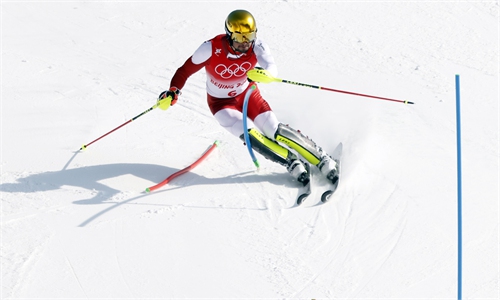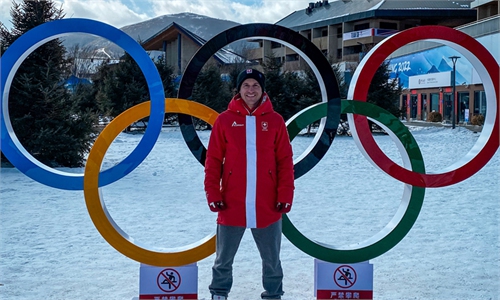How does Gu Ailing train? A look at her training field using China's homegrown 'needle mushroom' dry ski tech
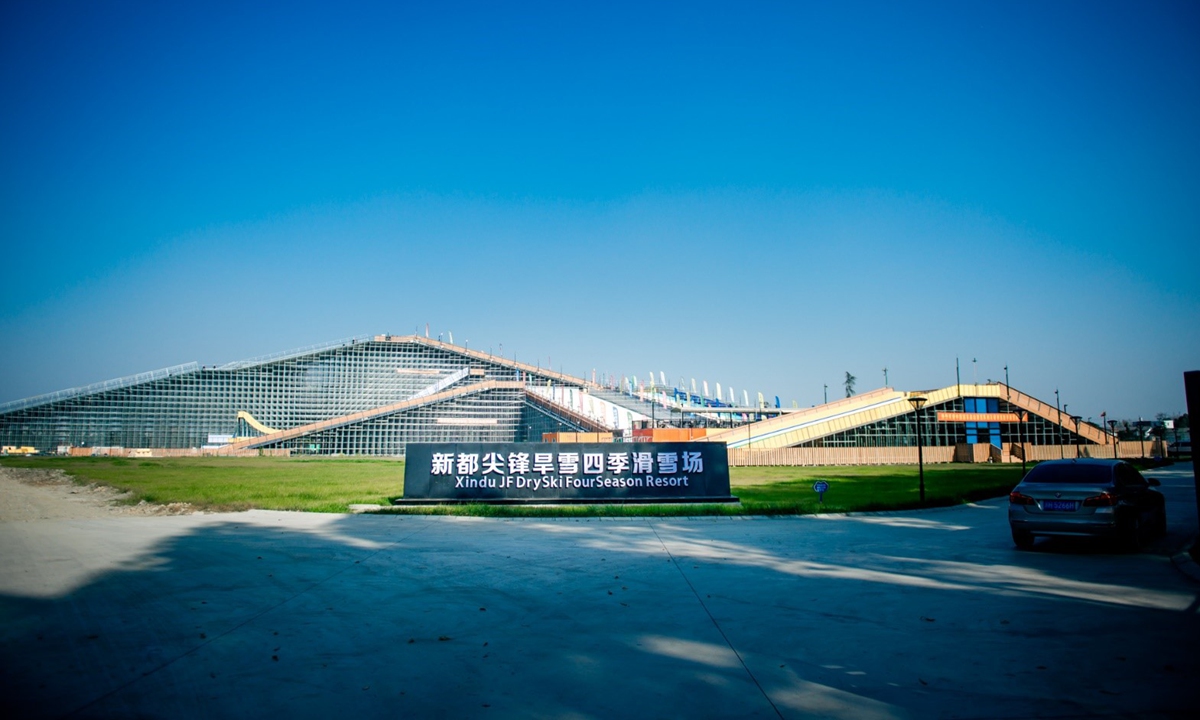
A view of the entrance of Xindu JF Dry Ski Four Season Resort. Photo: courtesy of JF
With Gu Ailing's historic gold at the Beijing 2022 Olympics' women's freestyle ski competition and Su Yiming's silver in the men's slopestyle final, a dry ski slope training field in Chengdu, Southwest China's Sichuan Province using China's homegrown "needle mushroom" dry ski technology - which played an indispensable role in their training regime - has come under the spotlight.
The world-leading "needle mushroom dry ski mat," made up of a special plastic material with many soybean-like beads on the surface, is 90 percent similar to real snow while immune to seasonal factors, temperature and energy consumption, Zhang Wei, an executive of JF Dry Ski Four Seasons Ski Resort, China's largest dry ski resort, told the Global Times on Friday.
"There are three main dry ski mats in the world: 'brush,' 'comb' and 'needle mushroom' for which China owns patents. Compared with the other two types, the 'needle mushroom' design excels in safety and practicability. The small ball-shaped design at the top also ensures it is non-touchable in 360 degrees and the skating speed is not disturbed," Zhang said, adding that the mat contains 16,600 small balls every square meter.
According to Zhang, eight Chinese national teams consisting of over 70 athletes trained at the ski resort last year. Gu Ailing also trained there, usually from 10:30 am to 4 pm without a break.
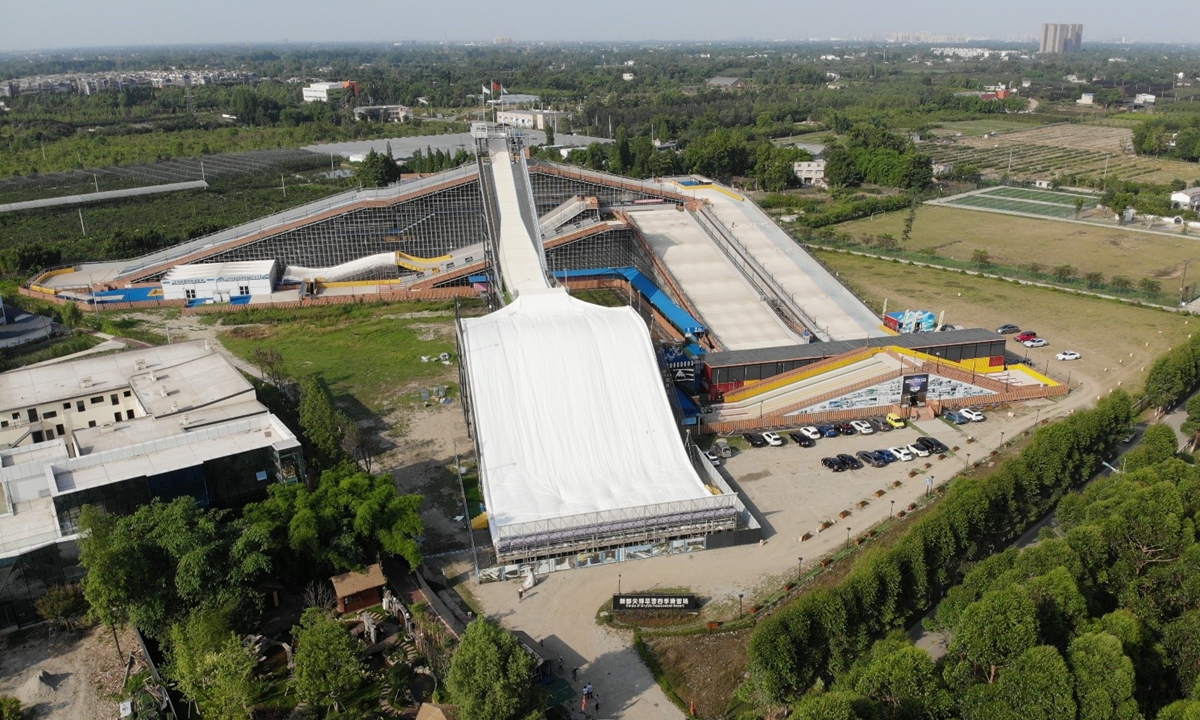
An overview of Xindu JF Dry Ski Four Season Resort. Photo: courtesy of JF
Su Yiming also trained at the ski resort several years ago. "He came alone, at the hottest time of the year, carrying 50 kilograms of equipment. And he trained eight hours a day, sweating profusely," Zhang recalled.
Research and development on China's homegrown dry ski technology began in the 2000s, and it takes about 10 years for the research team, led by the company's founder Jian Feng, to find the proper material for making "needle mushroom" out of over 1,000 plastic products.
Following an R&D breakthrough, the function of the mats is very stable now, with its service life of more than 10 years. In addition to being used in 40 ski resorts across China, the "needle mushroom dry ski mat" has also been exported to 15 ski fields abroad, including Australia, the US, Japan, Canada, the UK and Sweden.
Zhang said that selling "dry skiing" in China's South is difficult, and the company had to build China's first four-season dry ski resort by itself in Chengdu in 2012.
The past decade has seen the explosive growth of China's winter sports market, and Chinese citizens' enthusiasm for skiing climaxed with the opening of Beijing 2022 Winter Olympics.
"We usually receive 60 customers a day. And in recent days, the customer traffic jumped to over 300 every day because of the celebrity effect," Zhang said.
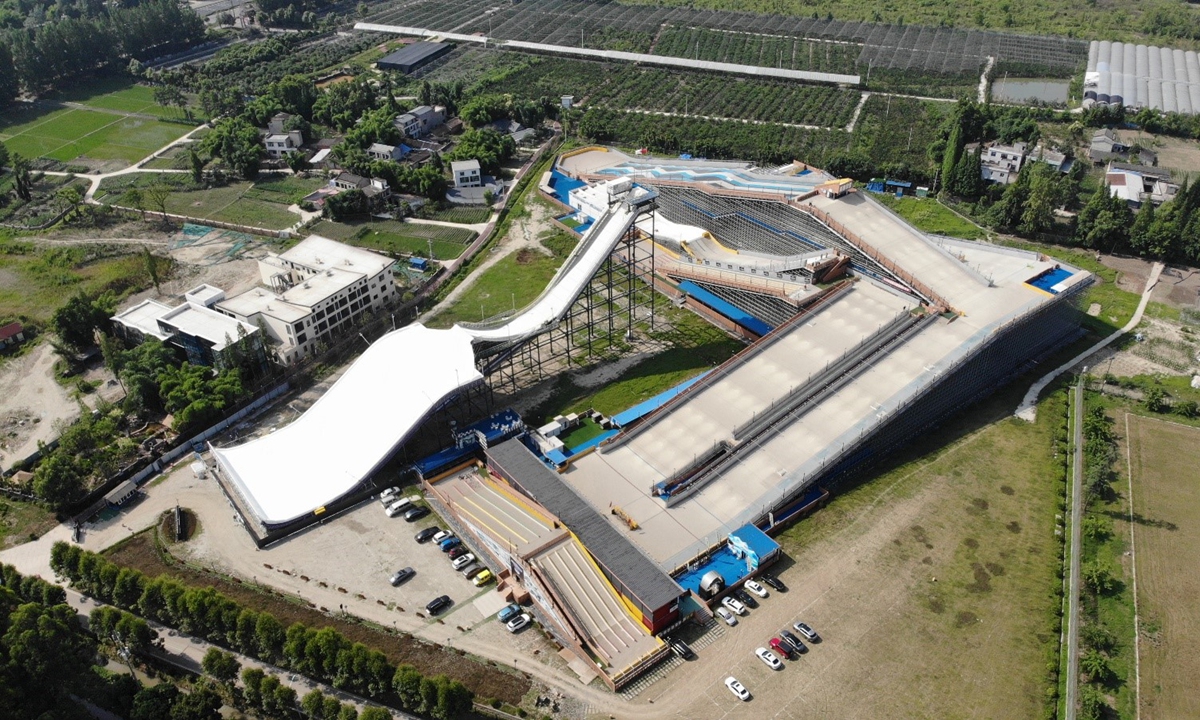
An overview of Xindu JF Dry Ski Four Season Resort. Photo: courtesy of JF

